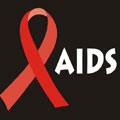
A report of the Commission on AIDS in Asia entitled “Redefining AIDS in Asia: Crafting an effective response” has been released by the Prime Minister, Manmohan Singh in New Delhi on Monday. The report highlights the information and the steps to be taken in effective strategy planning thereby reversing the spread of HIV/AIDS epidemic in the countries of Asia.
The Commission chaired by the Chief Economic Advisor to the Prime Minister of India, Dr Chakravarthy Rangarajan, after studying and analysing the ground realities in terms of impact and developmental consequence in the socio-economic environment of Asia pacific region put forth a set of recommendations and measures to be taken by respective administration.
Prime Minister Manmohan Singh said that the report validates the measures they have adopted in India to reverse the pandemic, however, there is no scope for complacency and Dr. Rangarajan has just now reminded us.
“The report has underlined clearly the importance of a public health approach to the problem if we want truly sustainable gains. We need to do more, we must do more and all segment of the national thinking community must be actively involve in this gigantic struggle against this menace of AIDS,” Prime Minister further added.
As per earlier reports, the number of HIV patients in Asia alone was over 9 million by the end of 2005 it was estimated that there might have been up to 5 million persons affected by HIV in India. However, the recent estimation of HIV/AIDS patients in India puts the figure somewhere around 2 to 3 million, primarily in the States of Andhra Pradesh, Karnataka, Maharashtra and Tamil Nadu.
The government after reviewing the report needs to accelerate measures in terms of strategies and the programme to control its further spread. The analysis of the impact of HIV and AIDS was conducted by a group of experts including economists, scientists, civil society representatives and policy-makers from across the region.
This comprehensive study undeniably underlines the driving factors in Asia’s HIV epidemics and its impact on human resources, labour productivity, poverty reduction, social stability and hence the need of best strategies for overcoming the epidemics.
The report has highlighted the importance of political engagement and leadership as a key part of national responses to HIV and AIDS. Law enforcement agencies and the judiciary need to be co-opted to support progressive policies that address the problem.
The prime minister reiterated his government’s commitment to support the strategies and work being done by the National AIDS Control Organisation. He also stressed the importance of community and civil society involvement and public awareness regarding healthy sexual practices, including the modern sex education at the appropriate school stages etc. which can help in ending social stigmas and developing a more tolerant society.
Manmohan Singh also appealed to all medical practitioners, hospitals and blood banks across the country to adopt zero risk and best practice methods for blood collection and blood transfusion to win this battle against HIV/AIDS.
null
|
|
Read More: Delhi


Comments: